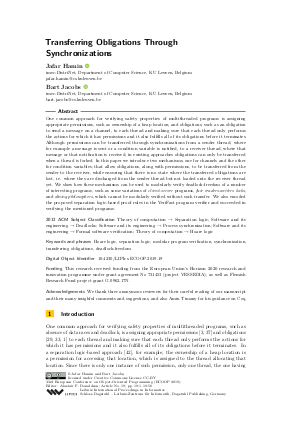LIPIcs.ECOOP.2019.19.pdf
- Filesize: 0.74 MB
- 58 pages

 Creative Commons Attribution 3.0 Unported license
Creative Commons Attribution 3.0 Unported license
















































Feedback for Dagstuhl Publishing